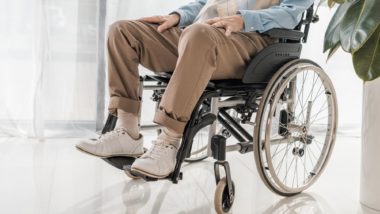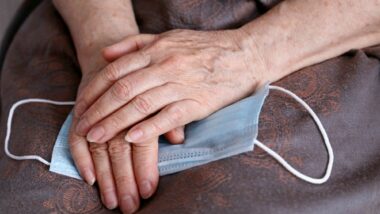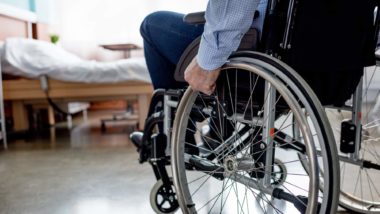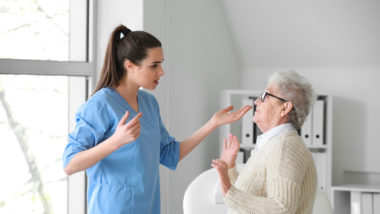Top Class Actions’s website and social media posts use affiliate links. If you make a purchase using such links, we may receive a commission, but it will not result in any additional charges to you. Please review our Affiliate Link Disclosure for more information.

Bedsores develop when a person has not been moved from a long period of time from their current physical location. This can put pressure on the parts of the body remaining still and can develop into painful or possibly infected ulcers.
Are Bedsores Treatable?
Bedsores can be treatable, but if the treatment comes too late when the symptoms are advanced, this can lead to fatal complications. Across the United States, it’s estimated that bedsores in intensive care units can be as common as occurring in over 20 percent of cases.
Bedsores are most likely to impact the bony parts of the body and develop in stages. Moving patients frequently is the best way to prevent pressure ulcers or these bedsores, but if a patient is left alone for long periods of time, they might not only develop pressure ulcers, but could also suffer from malnutrition or hydration issues.
What Are the Symptoms of Nursing Home Bedsores?
Warning signs of a pressure ulcer development include puss like draining, swelling, unusual changes in the patient’s skin texture or color, tender areas, and an area of the patient’s skin that is warmer or cooler to the touch than other areas.
According to the Mayo Clinic, bedsores are classified based on their severity, depth and other characteristics.
Who Is Most at Risk for Nursing Home Bedsores?
Certain patients inside a nursing home may have high risk factors for development of bedsores. According to Johns Hopkins Medicine, those individuals who have already been diagnosed with circulation or diabetes problems, have weight problems or have difficulty controlling their bladder or bowels are also more likely to develop bedsore injuries.
These patients should receive extra attention and regular movement from nursing home staff. Those most at risk for pressure ulcers include those unable to sense pain, those who are unconscious, bed ridden patients or those patients who struggle to move on their own. If a person is not given good skin care, nutrition or hydration, this can heighten the risk factors for the development of bedsores.
Why Don’t Patients Get Moved in Nursing Homes?
One of the most common reasons that a patient does not get moved frequently enough to avoid the possibility of bedsores has to do with understaffing in nursing homes.
Nursing homes attempting to cut corners and save money, might assign one staff member to so many patients that the worker cannot possibly keep up or does not have appropriate supervision to follow through on moving the patient regularly.
How Do Bedsores Advance?
There are different stages of bedsores, and the patient’s condition can get worse as these bedsores are left untreated. When the bedsores get to the advanced stage, this can cause serious pain and problems for the patient.
If a staff member notices that a patient has bedsores or the early signs of these, the condition can be addressed immediately by a doctor. When the condition is unknown or ignored, the patient might develop other health issues.
In the mildest stage of bedsores, the ulcers only impact the upper layer of the patient’s skin. According to WebMD, itching, pain, and burning are some of the most common symptoms. In stage two, the ulcers go under the top layer of the skin. In this case, a patient’s ulcer will look like an open wound or a blister. When treated, a stage two blister can be fully treated in just a few days.
Stage three sores might appear on the skin like a crater and carry a strong odor. This can also be the first physical indication of the infection signs. Stage four pressure ulcers are the most dangerous, because these can lead to infections throughout the body.
If the skin has turned black or if the store has red edges, heat, or drainage, a person looking at the sore might also see muscles, bones, and ligaments underneath. This is the most serious stage of a pressure ulcer and requires immediate medical attention. When ignored, the patient’s condition with stage four ulcers can decline quickly.
This is a key example of nursing home abuse and neglect and these concerns can be raised in a lawsuit against the nursing home when you discover that a loved one has developed a bed sore or passed away primarily due to complications related to bedsores.
In general, nursing home neglect lawsuits are filed individually by each plaintiff and are not class actions.
Do YOU have a legal claim? Fill out the form on this page now for a free, immediate, and confidential case evaluation. The attorneys who work with Top Class Actions will contact you if you qualify to let you know if an individual nursing home neglect lawsuit or class action lawsuit is best for you. Hurry — statutes of limitations may apply.
ATTORNEY ADVERTISING
Top Class Actions is a Proud Member of the American Bar Association
LEGAL INFORMATION IS NOT LEGAL ADVICE
Top Class Actions Legal Statement
©2008 – 2024 Top Class Actions® LLC
Various Trademarks held by their respective owners
This website is not intended for viewing or usage by European Union citizens.
Get Help – It’s Free
Join a Free Nursing Home Neglect Class Action Lawsuit Investigation
If you qualify, a nursing home lawyer will contact you to discuss the details of your potential case at no charge to you.
PLEASE NOTE: If you want to participate in this investigation, it is imperative that you reply to the law firm if they call or email you. Failing to do so may result in you not getting signed up as a client or getting you dropped as a client.
Oops! We could not locate your form.












